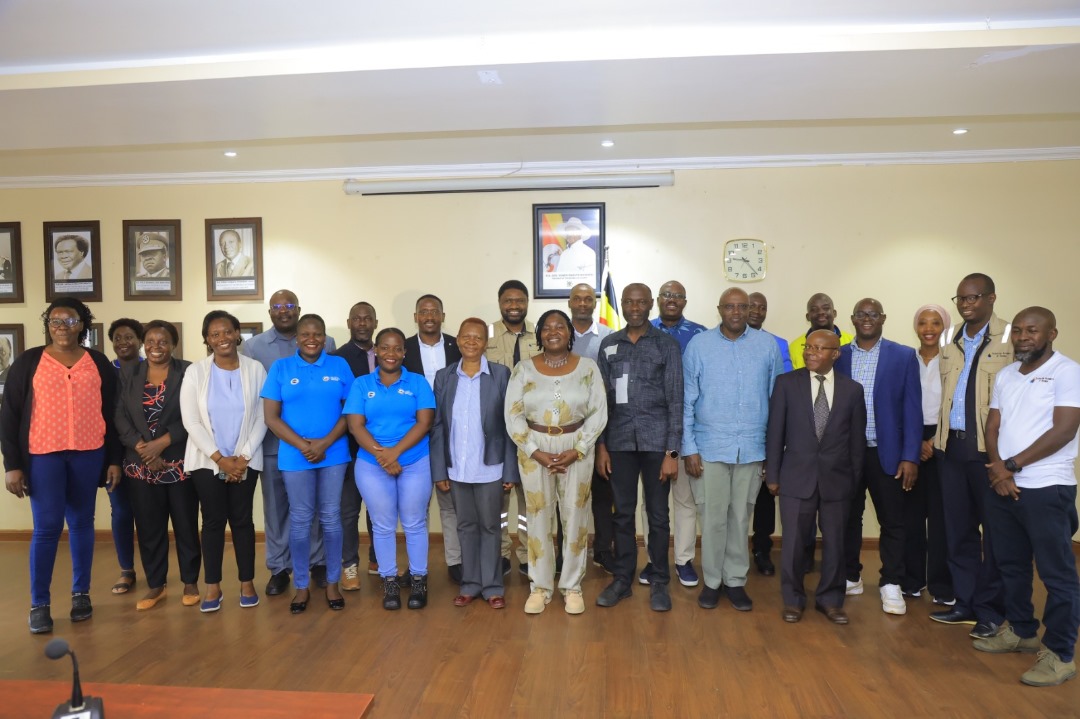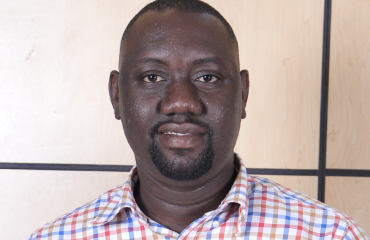
In a move aimed at solidifying Uganda’s position in the global energy landscape while prioritizing environmental sustainability and economic growth, officials from the Ministry of Foreign Affairs (MoFA) and the Heads of Uganda’s Missions in Beijing, Abu Dhabi, Paris, and Dar-Es-Salaam have embarked on a landmark 4-day field visit to the Albertine Graben region.
This visit, being hosted by the Petroleum Authority Uganda (PAU), is set to be a pivotal moment in fostering international partnerships and knowledge exchange in Uganda’s critical oil and gas sector.
Under the leadership of Mr. Vincent Bagiire, Permanent Secretary of the Ministry of Foreign Affairs, and Hon. Ruth Nankabirwa, Minister of Energy and Mineral Development, the delegation’s objectives are diverse, in line with Uganda’s strategic emphasis on key sectors essential for sustainable economic progress.
During the flag-off ceremony, PS Vincent Bagiire underscored MoFA’s priorities, emphasizing the importance of Agro-processing, Tourism, Mineral Development, and Science/Tech transfer in driving Uganda’s economic agenda forward. These priorities not only highlight Uganda’s commitment to economic diversification but also signal a robust approach to fostering global collaborations across various sectors.
Minister Nankabirwa’s address during the ceremony echoed the urgency of addressing environmental concerns tied to fossil fuels and deforestation. Her emphasis on exceeding legal standards in environmental protection reflects Uganda’s proactive stance on sustainable development amidst rapid economic expansion.
The Minister also stressed the pivotal role of infrastructure development, particularly in refining and pipeline projects, as catalysts for economic growth and the creation of employment opportunities, ensuring prosperity reaches all levels of society.
The first leg of the field trip took the delegation to the Uganda Petroleum Institute, Kigumba (UPIK) in Kiryandongo district, a crucial institution established in 2009 to train technicians in various disciplines relevant to the oil and gas industry. UPIK’s curriculum encompasses instrumentation, electrical and mechanical maintenance, health safety, and environmental standards, welding, metal works, and fabrication, among other critical courses. The institute’s strategic importance lies in its role in nurturing the essential blue-collar workforce required for Uganda’s burgeoning oil and gas sector.
A closer look at UPIK’s achievements reveals a commendable effort in training and skill development. A total of 1041 trainees have been enrolled in O&G diploma programs and international vocational qualifications, a testament to the collaborative efforts of the Government of Uganda, the Skills Development Fund (SDF) under the Private Sector Foundation (PSFU), TotalEnergies EP Uganda LTD (TEPU), and the Albertine Region Sustainable Development Project (ARSDP) funded by the World Bank.
Throughout the field visit, the delegation plans to visit various sites of significance, each highlighting different facets of Uganda’s energy and mineral development landscape. These visits will be instrumental in fostering discussions and collaborations centered on key themes such as environmental sustainability, infrastructure development, energy transition towards renewables, social impact, investment opportunities, and navigating the legal, technical, and social challenges associated with energy and mineral development.
Environmental sustainability remains a top priority for Uganda, as echoed by Minister Nankabirwa’s statements during the flag-off ceremony and subsequent engagements. The emphasis on combatting environmental harm caused by fossil fuels and deforestation underscores Uganda’s commitment to responsible resource management and climate action.
Furthermore, discussions on infrastructure projects such as refineries and pipelines not only highlight their economic significance but also stress the importance of sustainable practices in their implementation and operation. The Minister’s call for investment in renewable energy sources aligns with global trends towards a greener future, emphasizing the need for robust electricity infrastructure to support the transition and ensure equitable access to clean energy across Uganda’s diverse communities.
The social impact of energy and mineral projects cannot be overstated, as they have the potential to uplift living standards and provide clean energy solutions to marginalized and displaced communities. Minister Nankabirwa’s personal engagement and commitment to visiting project sites and engaging stakeholders underscore the government’s dedication to ensuring transparency, progress, and success in these endeavors.
In conclusion, the ongoing field trip to the Albertine Graben region represents a significant milestone in Uganda’s journey towards sustainable economic growth, energy security, and environmental stewardship.
By engaging in collaborative efforts with international partners and leveraging expertise across sectors, Uganda is getting ready to handle the challenges of developing energy and minerals wisely. The goal is to create a better and more sustainable future for Ugandans and the Earth.


